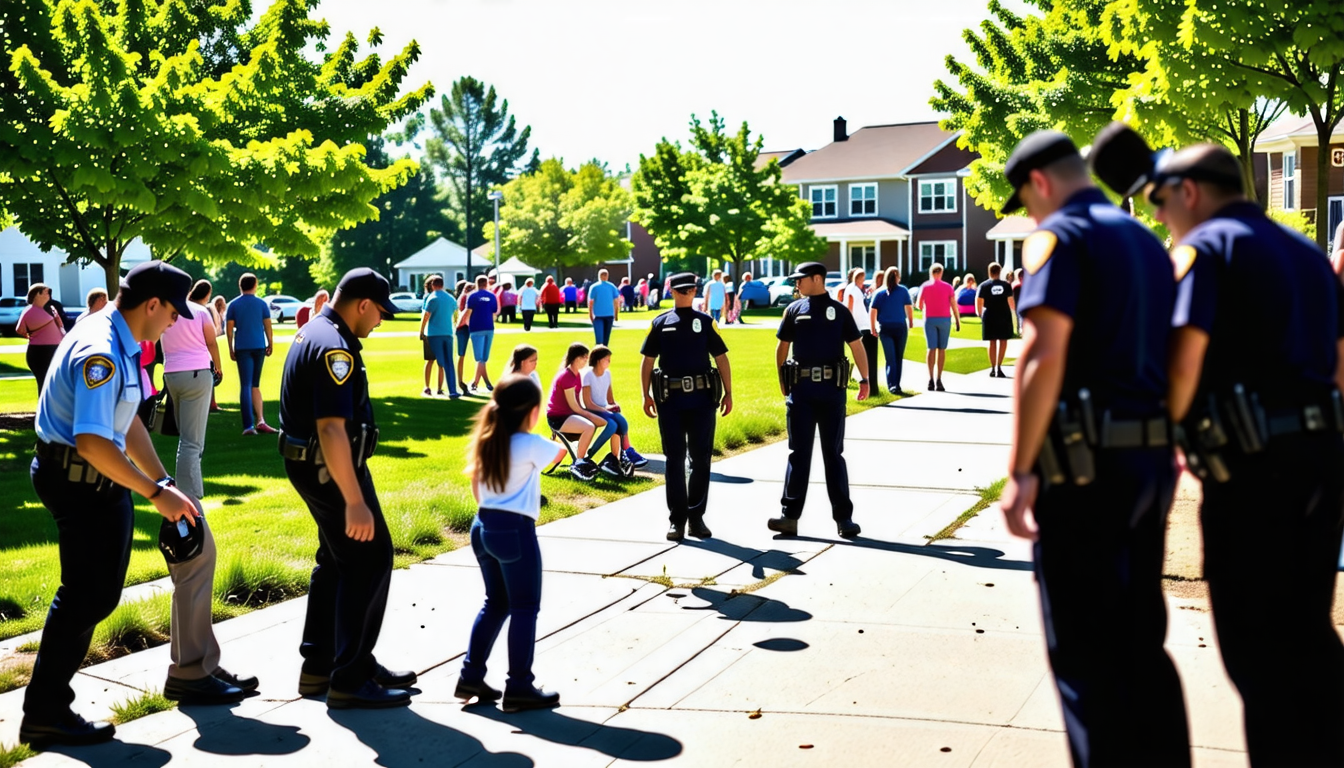|
IN BRIEF
|
The Royal Canadian Mounted Police, commonly known as the RCMP, stands as a pillar of law enforcement in Canada, enveloping a diverse range of responsibilities that extend far beyond mere policing. Established in 1873 with the mission of ensuring safety and order in a rapidly expanding nation, the RCMP operates under a federal mandate, tackling issues from crime prevention to national security. In every province and territory, these dedicated officers are not just enforcers of the law; they are community protectors, investigators of serious offenses, and critical responders in emergencies. The multifaceted role of the RCMP intertwines with the very fabric of Canadian society, embodying commitment to public safety while adapting to new challenges that arise in an ever-evolving landscape.

The Royal Canadian Mounted Police (RCMP) plays a vital and multifaceted role in Canada’s safety and security framework. Established under a federal mandate, this police force operates at various levels across the country, providing crucial services that range from enforcing federal laws to ensuring community safety. The RCMP is more than just a law enforcement agency; it embodies a commitment to maintaining peace and order while embracing the principles of community policing.
Conclusion of the Royal Canadian Mounted Police’s Role
The role of the Royal Canadian Mounted Police is extensive and multifaceted, encompassing law enforcement, community engagement, and national security. Their proactive approach to policing not only addresses immediate threats but also fosters trust within communities, creating a safer environment for all Canadians. From enforcing the law to providing support for victims of crime, the RCMP remains dedicated to its mission of ensuring the safety and well-being of citizens across the nation.
For more detailed insights about the training that RCMP officers undergo and their operational history, you can visit resources like RCMP career options and training programs for Canadian police officers. Additionally, you can explore the origin story of the RCMP and its role in Canadian history on the official RCMP website or consult comprehensive resources about the organization on Britannica.
Investigating Inter-Provincial and International Crime
The complexity of modern crime necessitates a robust investigative approach. The RCMP often leads investigations that span multiple provinces or even international lines, utilizing advanced investigative methods to gather intelligence and execute strategic operations. This aspect of their role is not only about enforcing laws but also about dismantling networks that threaten national security.

The Royal Canadian Mounted Police (RCMP) serves as Canada’s federal police force and plays a multifaceted role in ensuring the safety and security of Canadians. Established to maintain law and order, the RCMP is responsible for enforcing federal legislation, investigating crimes that occur between provinces and internationally, as well as safeguarding border integrity. According to statistics, the force operates in more than 700 communities across the country, including rural and remote areas.
One of the key responsibilities of the RCMP includes crime prevention, where officers actively engage with communities to deter criminal activities. Furthermore, they respond to emergencies, assist victims, and work tirelessly to reduce youth involvement in crime. This is particularly vital given that over 30% of reported crimes in Canada involve individuals under 18 years old.
Moreover, the RCMP contributes to national security through intelligence gathering and collaboration with other policing agencies. Their commitment extends beyond law enforcement; they also support community initiatives to build trust and ensure public safety. This holistic approach underscores the integral role of the RCMP in fostering a secure environment for all Canadians, reflecting their dedication to a comprehensive policing strategy.
For additional insights on the roles and responsibilities of the RCMP, you can explore their official website as well as resources from Wikipedia.

The Royal Canadian Mounted Police (RCMP) serves as a vital pillar within Canada’s law enforcement framework. Operating under a federal mandate, its primary responsibilities encapsulate crime prevention, law enforcement, and maintaining public order. The RCMP addresses not only federal crimes but also engages in provincial policing, ensuring safety across all jurisdictions. Their unique approach combines community-oriented policing with national security efforts, reinforcing their role in investigating inter-provincial and international crimes. Additionally, the RCMP plays a crucial role in emergency response and search and rescue missions, exemplifying their commitment to safeguarding not only Canadian citizens but also their interests. This multifaceted approach underscores why the RCMP is regarded as Canada’s national police force.
FAQ
What is the primary role of the Royal Canadian Mounted Police?
R: The primary role of the Royal Canadian Mounted Police (RCMP) is to ensure the safety and security of Canadians. This includes enforcing federal laws, preventing and investigating crime, and maintaining public order.
Does the RCMP handle all types of policing in Canada?
R: While the RCMP serves as the federal police across Canada, it also provides provincial and municipal policing in certain areas, thus covering a wide array of policing responsibilities.
How does the RCMP contribute to national security?
R: The RCMP plays a crucial role in national security by investigating inter-provincial and international crimes, gathering intelligence, and collaborating with other security agencies.
What services does the RCMP offer to the community?
R: The RCMP offers various community services, including emergency response, victim assistance, crime prevention programs, and initiatives aimed at reducing youth involvement in crime.
What is the significance of community policing in the RCMP?
R: Community policing is fundamental to the RCMP’s approach, as it emphasizes building relationships with community members to collaboratively address public safety concerns and enhance community trust.

